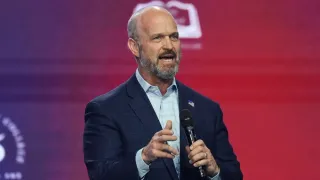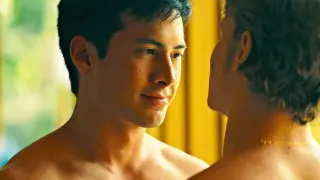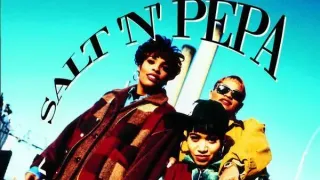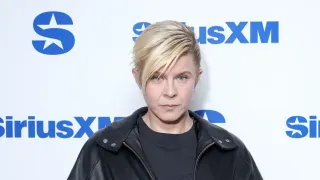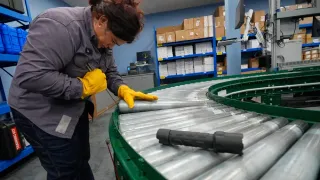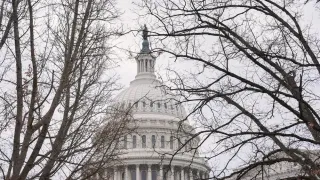September 10, 2023
Peripheral Visions: Sanctuary
Kilian Melloy READ TIME: 19 MIN.
"Peripheral Visions: You sense them from the corner of your eye or in the soft blur of darkest shadows. But you won't see them coming... until it's too late."
Sanctuary
"There's more of them," the man sitting next to Stuart muttered angrily.
Stuart glanced at the man. He was colorless, dressed in a shabby gray overcoat. He wore large horn-rimmed glasses of an old-fashioned kind – the sort of eyeglasses that younger people went for now, boxy-looking and black. The clunky eyeglasses fit the man's face, which had a fleshy, exaggerated look. The expression he wore seemed exaggerated as well – a frown that was etched so deeply that it seemed unlikely any other expression could prevail.
Stuart looked at where the man's glare was fixed. Two children, clad in rain jackets and wet waterproof hats were making their way up the aisle of the bus. The bus started moving again, and the two swayed on their feet; they seemed to have difficulty walking, Stuart noticed. Their gaits were strangely labored.
"They should go back where they came from," the man sitting next to Stuart complained in a voice that was louder than necessary... if, that is, the man was talking to Stuart.
But he wasn't. He was talking to the whole bus.
No one seemed to pay the man any mind. The two kids who had gotten on certainly didn't.
It was past rush hour, but the bus was still fairly crowded. Still, the two newcomers found seats and set about making themselves comfortable, stowing their folded umbrellas after awkwardly climbing into the seats.
"Can't even move around," the man muttered, his voice low again. "Probably patients at that new clinic."
"New clinic?" Stuart said. "What new clinic?"
"They were talking about it a couple years ago," the man said. "Clinic for motor neuron diseases or something. Sick people. In our neighborhood! No, sir. Don't need it. And especially not with the way President Fordham is letting people into the country on medical visas."
Stuart rolled his eyes. He'd heard all the complaints he cared to about the visas and so-called "medical refugees." The facts, as he knew – being in the medical field himself – was that the visa process had been relaxed for wealthy people from a select number of countries – the ones affected by the dirty bombs that terrorists had set off in Europe more than two years ago. Particularly irksome was the fact that the new visa rules were implemented under the last president, not Fordham, though the newsfeeds seemed determined to blame him for it.
Maybe the two kids the man had pointed out were patients of some sort, but Stuart felt sure that if there were a new clinic in the city, much less in his neighborhood, he would know about it.
Maybe the man was talking about the Culpepper Cancer Center – a treatment center for children who were victims of the dread disease. "Do you mean the hospital they tried to set up a couple years ago?" he asked the man. "The Culpepper?"
The man waved a hand. "I dunno what it was called. But I was out there protesting. Who do they think they are, bringing people like that into my neighborhood?"
"What, sick kids?" Stuart asked him.
The man glared at him momentarily and then turned toward the window, hostility radiating off him like stream rising from his wet overcoat.
"You can relax," Stuart told him. "You NIMBY types derailed that clinic when it was first suggested. It was never built."
"Yeah?" The man looked up the bus at the two kids in their wet rain gear. "So, what about them? Where did they come from, and why are they here?"
Stuart didn't answer him. The man reached over and pressed the switch on the support next to the seat. With a dinging sound, the STOP REQUESTED light came on. Stuart rose from his seat, stepped into the aisle, and made room for the man, who brushed by him then walked up the aisle, grabbing at the overhead rail as the bus swayed and then braked to a stop. Taking his seat again, Stuart watched as the man passed the two kids he'd pointed out, glaring first at one and then the other in a pointedly unfriendly way. The doors opened with a pneumatic hiss and the man stepped off the bus. A few people crowded on, and the doors closed again. One of the new riders made her way to toward the back of the bus, clearly angling for the empty seat where the hostile man had been sitting a moment ago. Stuart moved over so that the aisle seat was accessible, and the woman flashed him a grateful smile. Stuart smiled back, then glanced up the aisle.
One of the children the hostile man had been complaining about was looking back at him. He wasn't easy to see, under his large waterproof hat, but Stuart could see that despite his diminutive size, he was no child... not unless progeria was his problem. His face was pale... almost grayish... and it seemed taut and sharp, his pronounced cheekbones made more prominent by an overall gauntness. The man's eyes seemed completely black, and a pale fringe of straight hair peeked from under the hat, forming a line across his forehead. The man's glance back at Stuart lasted only a few seconds, and then he looked ahead once more. Stuart studied his shape curiously. It seemed off, somehow, but Stuart couldn't say why. One thing was clear: He was tiny.
The bus stopped a few more times before Stuart got off, and people boarded and exited, but the small, black-eyed man didn't look back again.
The bus rolled to a stop as Stuart made his way past the woman sitting next to him, then walked up the aisle to the exit. He was tempted to glance down at the man and his companion as he passed, but he remembered the unpleasant way the hostile man had acted toward the pair and felt too self-conscious to look. Still, he was curious; he managed a swift glance at the man's companion, hoping he wasn't being too obvious, and had a fleeting impression of a similar face, though a feminine one. Black eyes, angular bone structure, a hint of straight, pale hair.
Stuart thoughts back to having seen them board the bus – how small they seemed, no larger than children.
Again the thought came to him: Were they children? Were they suffering from progeria or some similar disease that accelerated aging?
But they hadn't looked like elderly people, not judging from the glimpses Stuart caught of them. Their skin was sallow but unlined.
But the way they moved... could that be due to some sort of arthritis? Were they medical refugees? Were they being treated at one of the city's medical centers?
But no, Stuart reminded himself as he stepped off the bus into the pouring rain. There was no clinic in this part of the city.
He raised his umbrella and pressed the switch to allow it to blossom. Rain pelted the fabric that suddenly sheltered him, and Stuart turned in the direction of his apartment building. Three blocks through this downpour, and then he'd be home – soaked by then, probably, at least from the knees down...
It was already dark. The clouds overhead blotted out whatever last remnant of daylight there might have been. This October had been colder, with shorter days, than any he could recall, though surely some of that was due to Stuart's own imagination. The times being what they were, even summer days seemed dim compared to years past, when the country had felt safer, more civil.
Again, Stuart's mind flashed back to the two tiny people on the bus. They might have been foreigners, he thought, though their faces hadn't struck him as being of any specific ethnicity. Maybe their ailment had nothing to do with the dirty bombs in Europe. Maybe they lived here. Maybe they were brother and sister, or even twins, afflicted with the same genetic condition. Could they have been receiving treatment at one of the big medical centers or university hospitals? Those were across town, but perhaps the two diminutive people were on their way home from having been treated?
That made more sense than there being some sort of new clinic he'd never heard of.
Then Stuart had a thought: Maybe it wasn't a clinic at all they were headed to or from. Hadn't there been talk of some sort of halfway house or refugee shelter? Yes, he thought; yes, that was it. The mayor had run her re-election campaign on promises to push back against the federal government's policies, which she said were cruel and exclusionary. She had declared that theirs would be a "sanctuary" city.
Sanctuary. Stuart shook his head, a halfhearted smile on his face. Couldn't they all use some sanctuary now days? He didn't agree with the hostile man – with his bitterness and hate, with the bile he must have carried for a lifetime in order for his face to be so petrified in a look of contempt and resentment. But he could understand it the man's sentiments. He had never heard the details of this halfway house, or whatever it was, and he had forgotten about it. But what if it had flown under the radar? What if it had been built, or an old apartment building renovated, to house... who knew? Migrants? Or, yes, maybe even some of those rich medical refugees from poisoned parts of the world. People who came here to seek medical care and were allowed in because they could afford it. People treated like royalty thanks to the amount of cash they had at their command.
Stuart shook his head again, this time without a trace of a smile. Don't be like that asshole on the bus, he chastised himself.
***
Once he'd seen them, Stuart couldn't stop seeing them. The same pair seemed to ride the bus almost every day at the same time he took it homeward. Had they been on the bus every day and he'd simply never noticed them? Or were they recent arrivals?
They weren't alone. Other people of similarly small stature seemed to travel with them sometimes. One evening he saw half a dozen of them – all of them five feet tall, at most, and all of them moving in the same shambling, uncomfortable manner.
And all of them wearing the same large hats and jackets, whether it was raining or not, even on days that had been sunny and bright.
One evening, Stuart happened to sit just in front of two of them, while another two occupied the seats across the aisle. He could hear them talking over the drone of the bus, its squeaking brakes, and the hiss of the pneumatic doors. But he couldn't hear them well enough to have a sense of what kind of language they were speaking. What little he could hear had a curiously musical aspect to it that seemed very much out of keeping with the labored way they moved.
Each time he saw them he got a better look at their faces, which were invariably framed by their large hats and high collars. Black eyes – all of them had black eyes. Eyes that hardly seemed to have any whites, eyes with no color; simply black. Pale grayish skin. Gaunt faces, with tapering chins and pursed lips. Sometimes, as if reacting to his scrutiny, one of them would stare back to him, and their eyes seemed especially unnerving; finally, Stuart understood why: They barely blinked.
He found himself frightened by them, though he couldn't say why. Am I just being prejudiced? he asked himself. Is this some sort of deep-seated animal instinct that signals "other" when I see the color of their eyes, the shape of their faces and bodies?
Stuart was determined not to be that guy – either in the broad vernacular sense of the phrase, or its literal embodiment in the person of the hostile man, who, like the black-eyed small people, he suddenly seemed to be noticing all the time.
The man's hostility had not cooled. If anything, he seemed ever more willing to make loud, disparaging remarks around the diminutive people and about them – remarks about foreigners, about "invaders," and about "medical tourists" and "vectors."
Stuart shook his head, appalled... and yet, he felt some of the man's ugliness in himself.
Behind everything else, though, there was a growing suspicion, and a growing fury, that someone in the city government had pulled a fast one. One or two people with such striking appearances and manners of movement was explainable, maybe... but four of them? Six?
It was when Stuart took a bus, then a tram, then another bus, and saw three more of the unusual people that he really became aware of that underlying anger. They weren't just in his neighborhood – they were all over. Who were they? Did they come from one of those rising superpowers, like India, that was buying up houses and tracts of land all over the country? Why were they here? Stuart wasn't sure he believed the medical visa theory any longer. The little people looked strange – moved strangely, dressed strangely – but they didn't strike him as being ill.
After the crosstown journey, he decided to get some answers. A day or so later, during a lull in the morning's workflow, he picked up his cell phone and dialed the number of someone he knew at the city hall.
"Hey, Diane," Stuart said when she picked up. "Yeah, I can make it quick... no, everything's fine. No, it's not about my license expiring, I got that taken care of a long time ago, before Scott and I broke up. Well, sure I want to hear, how is he? Scott's fine? Okay, that's good. I'm glad. No, you don't have to say hi to him for me... it's just best if we let it be. What's that? Oh... I'm fine; thank you, thank you for asking; how are you? Good – look, I don't want to take up your time, I just had a question. I've been seeing these... well, odd-looking people who... What do I mean by odd? Well, they're, like four and a half feet or five feet tall, no more than that, and they have the weirdest eyes, and... No, I'm not saying they're from any particular country... I know, but I don't mean to sound that way. It's not a matter of race or nationality, it's just... well, they all look unusual in the same way, and this guy on the bus was saying they're all here for some sort of medical treatment... What do mean by 'here?' I mean... well, I mean here! As in, not in Europe, not in one of the fallout zones. No, I don't mean they're mutants, I just mean – I just mean, is there some sort of program, or clinic, or refugee housing that's been set up?" He listened to Diane's cold, brittle response. "Look, it's not like that at all," he tried to say. Then: "There's not? No, look, I'm just asking. You know I'm supportive of – what? No, I haven't started watching Faux News. You know I'm not... Diane?"
She had hung up.
Still, she had given him his answer. No such clinic, shelter, or halfway house had opened in the city.
***
Riding the bus a few days later, Stuart saw six of the strangers, as he'd begun thinking of them. He thought the man and woman he'd first noticed were among them, but he couldn't be sure. He was careful not to stare at them, relying on a passing glance or two to get a sense of whether he'd seen these particular individuals before.
He'd definitely seen one of them on previous occasions; the guy had a distinctive scar on his forehead, just above his right eyebrow. The scar was puckered, severe-looking, violet; it stood out against the man's grayish skin. Stuart wondered what the scar was from; it didn't look surgical. It was far too nasty. A car crash, maybe?
Stuart briefly considered the thought that maybe the strangers were all here for physical therapy of some sort after suffering traumatic injuries, then dismissed the idea. They wouldn't al look so similar, move in such similar ways, if that were the case... would they?
The hostile man was on the bus, too, Stuart realized when he heard the man's voice shouting out some sort of complaint. He was hard to hear over the noise of the bus...
"Yes, you!" the man's voice rang out now, perfectly audible. The man was lurching up the aisle, his own movements none too graceful as the bus rocked and then took a curve. The man held on to the overhead rail, then, as he regained his footing, he pointed at one of the strangers. Stuart permitted himself a good look; after all, what was he supposed to do? Not look at the scene that was unfolding?
He was fairly sure the hostile man was accosting the man he'd first seen a few weeks earlier, on that rainy night.
"Who are you people?" the hostile man was yelling. "Who let you in? Where are you going, where are you staying? Where are you from?"
"Hey!" someone called – a young guy; a student, from the look of his sweatshirt, which bore the logo of the local university. "Leave them alone."
The hostile man turned his attention to the college student. "What they teaching you at that school? I thought they stopped indoctrinating you kids."
"Oh, we've got professors and counselors and cultural monitors straight outta the KGB these days, don't you worry about that," the kid called back, "but we still know an asshole when we see one."
"What's that you say to me?"
"I said two plus still doesn't equal five!" the kid shouted at him.
"Pipe down all of you!" someone else shouted – the bus driver, Stuart realized.
"This guy's assaulting passengers!" the university kid shouted back.
"I'm not assaulting anyone!" the hostile man roared. "I just wanta know who these people are! They didn't useta be here... but now, all of a sudden, the city's crawling with 'em!"
"Crawling, huh?" the university kid yelled at him. "Like vermin?"
"Yeah, pretty much!" the hostile man replied in a shout.
"What are you trying to say?" the kid demanded.
The stranger and his companions were looking from the hostile man to the kid and back again, unimpressed, as if none of this had anything to do with them.
"I saying," the hostile man started, before the bus driver cut him off.
"That's it!" the driver shouted, and the bus wrenched hard to the right. Everyone – even people in the seats – hung on as the bus came to an abrupt halt at a desolate stop. "You... all of you... off," the driver called back.
"What!" the hostile man bellowed. "You can't – "
"Oh yes, I can," the driver shouted back at him. "Off my bus!"
"No! You want someone of the bus, you kick them off. I'm not moving."
"Neither am I," the driver declared. "Not until you get the hell off my bus."
"Yeah!" the college student shouted, a grin on his face.
"And you too, kid," the driver said forcefully. "And all of them – those – whoever they are, that the loud guy is having the beef with."
Now the strangers all looked at each other, and Stuart wondered if they, too, would start shouting. But they didn't; they simply stood up and moved, in their labored manner, toward the door, which had hissed open and was staying open.
"They're fucking off," the hostile man called to the driver. "We can go now."
"Nope," the driver reiterated. "You too."
"I..."
"This bus goes nowhere until you get off it. And you too, college kid."
"Fine with me!" the young man in the university sweatshirt laughed. He seemed to be enjoying the situation a little too much. Was that simply the exuberance of youth?
The student walked with a cocky, arm-swinging strut to the door and glanced at the hostile man. "You heard him, asshole. End of the line. Bigots out." The kid exited the bus. Through the windows, Stuart could see him pause by the small knot of strangers. "Sorry about this guy," he told them. "We're not all like him."
"Fuck you," the hostile guy, who had overheard, yelled at the kid.
"Any time you wanna follow them, mister. That's when the bus resumes its regularly scheduled route," the driver called back.
At this, the passengers set up a chorus – not protesting the driver but telling the hostile man to get off the bus. "Come on, man, let's go!" one man shouted, while a woman stormed, "I've got shit to do. Get the hell out!"
The hostile man looked around at the other passengers and started yelling about being a patriot and being persecuted for it. Finally, a large man rose from his seat and started walking toward him. "You gonna do what the driver tells you?" the man barked. "Or you gonna need some convincing?"
"I'm gonna report all of you people!" the hostile man declared, throwing one last look around the bus. "I'm gonna see you in court for violating my rights!" He headed for the open door.
"Violate this!" the woman who had yelled at him before shrieked.
"Yeah, you pretty well violated our rights, ya selfish prick!" the large man shouted.
Seized by a sudden impulse, Stuart jumped up quickly from his seat and rushed toward the doors, exiting the bus just before they shut behind him. The bus rumbled to life and headed off.
The university kid was already half a block away, walking with the direction of traffic. His gray sweatshirt made him little more than an indistinct blur in the evening gloom. The group of strangers were easily visible, thanks to their dun-colored overcoats, even if their large hats – all dark blue in color – obscured their heads. They seemed to be heading toward a small side street a short distance from the bus stop.
The hostile man was following after them, still shouting. Stuart didn't bother to listen to his ravings, except to note the occasional startling obscenity. There was an implicit violence in the situation, and Stuart, drawn by it, followed after the shouting man. As the group of strangers walked, Stuart saw that they were traveling at a much faster clip than he would have expected. Obviously, whatever the reason for their odd movements, they were far from disabled. The shouting man was having trouble keeping up, and so was Stuart.
The group turned left onto another small street, and Stuart realized that they seemed to be heading for a large, ramshackle house. This wasn't far from where they would have gotten of the bus anyway, Stuart realized. Was this where they lived? Was it indeed a clinic? A halfway hour or a shelter? Or was it some sort of embassy?
But it didn't look like an official building; it looked derelict. There were no lights on in the house, and the windows all seemed to be shuttered or boarded over. Even the streetlight out front was dark, leaving the house and its yard swaddled in shadows.
The house looked like it should be condemned. This couldn't be where the strangers were heading. Could it?
Sure enough, the strangers passed through the rusted gate and into the yard. The shouting man had fallen behind, but was suddenly running toward them, shaking his fists and screaming.
The group and the shouting man seemed to disappear together in the darkness of the yard, but Stuart could hear something happening – a scuffle. There were a couple of quick, startled shouts from the hostile man, and then a scream that was abruptly cut off. Other noises became audible as Stuart picked up his pace and neared the house; heaving breathing, footsteps, sounds of struggle and tearing clothing, and then... and then some sort of guttural growling, or...
Or...
Stuart stopped where he was, then began to back away.
Suddenly, swift forms moved through the darkness and surrounded him. Pale faces looked at him from under large, dark hats. Black eyes flashed, catching the light of streetlamps from a block over; their stares seemed luminous, ominous – lethal...
"And you are?" one of the strangers asked. His voice was soft and lilting, and he was speaking English. It was a distorted English... not accented, but somehow formed differently, as if his throat were shaped in some strange way and the shape of the words was altered.
"I'm... I'm Stuart." He looked from one to another of them. There were more than six, more than eight. There were a dozen... more... Stuart realized others had come from inside the house and were gathered around now. "Is... is he okay?" Stuart asked.
"You mean the man who followed us to our home? As you did?"
"Yes. I followed because I was concerned he wanted to hurt you."
Laughter rose up all around him, and Stuart looked over his shoulder, then turned in place. There were two, maybe three dozen dark shapes gathered in a circle, and in the middle of the circle was himself, growing more frightened by the moment.
The stranger who had spoken stepped forward. "He's no threat to us. None you are. Except..." The man looked around at the others, who seemed to lean forward with eagerness at his words. "Except in the way you destroy the world."
"What?" Stuart took another step back, considered running, realized he was totally surrounded.
"You destroy the world," the man said, his words still sounding oddly shaped, as if his own teeth were getting in the way. "You poison the water. You make sterile the land. Darken the sky. Make everything bitter and deadly. And us... you do this to us." The man shed his overcoat, and even in the dim light Stuart could see his unhuman shape and the way his arms and legs bent at strange angles. Stuart wondered if the man were about to drop to all fours. My god, is he a werewolf? flashed through Stuart's mind.
But then Stuart's more rational mind asserted itself. No. Of course not. He's a man, just... somehow put together differently...
"Where are you from?" Stuart asked.
The man opened his arms in an encompassing gesture that was both simple and strange. "Here," he said, his voice still garbled. "All of us... born here, in this poisoned, cursed place."
"What... what do you mean? Poisoned? Cursed?"
"Six hundred years from now," the man said.
"You..." Stuart's voice failed him. Surely the man wasn't saying...?
"That man was right," the stranger nodded. "Migrants? Yes. Yes, we are. Immigrants? Of a sort, yes. Aliens? That, as well, though of a very human variety. Human, and yet adapted... or maybe you would say twisted? Deformed?"
"No, I... that's shaming language, othering language," Stuart said. "I would never say those words."
"No, you only think them."
And Stuart understood: He hadn't said those words aloud, but they had occurred to him.
"We move the way we move," the stranger said, "we use our gifts, as unnatural as they seem to you... all in the name of survival. And in the name of survival, too, we use the great machine – it took the others, the owners, to distant stars long ago, and we are forbidden to follow. But we're not stupid. We learned to use the great machine to travel not through space, but rather time. And so... here we are. Fugitives from the world you left us."
"Me? But I... I recycle," Stuart said inanely.
All around him a new wave of laughter rose up.
"You, all of you, devoured the world and left hardly a scrap that was not debased, destroyed, embittered..." The stranger moved forward, his gauntness sharp not only in his face but his ribs, his collarbones, his pointing finger... "And now," he added, his shining eyes locked on Stuart's, "we, too, devour. The sins of the fathers..."
"Are the sins of the sons!" the others all screamed in a single voice, before they rushed in on Stuart. Another wave of laughter rose up, becoming a howl that drowned out Stuart's scream, the rending of flesh, and the snapping of bone.
In the autumn sky above, a sliver of moon sent pale light over the rooftops. This was a city that struggled to hold on against the tide of darkness; that sought to preserve sense and sanity; that had been declared a sanctuary.
And so it would be – but not for those who permitted such atrocities against nature and such inhospitalities toward the entire future of the human race.
Next week we return with a story of two boyhood friends whose game of make-believe – of aliens and space flight and desperation – is about to become all too real. Come back and meet "My Friend Shelvak."
